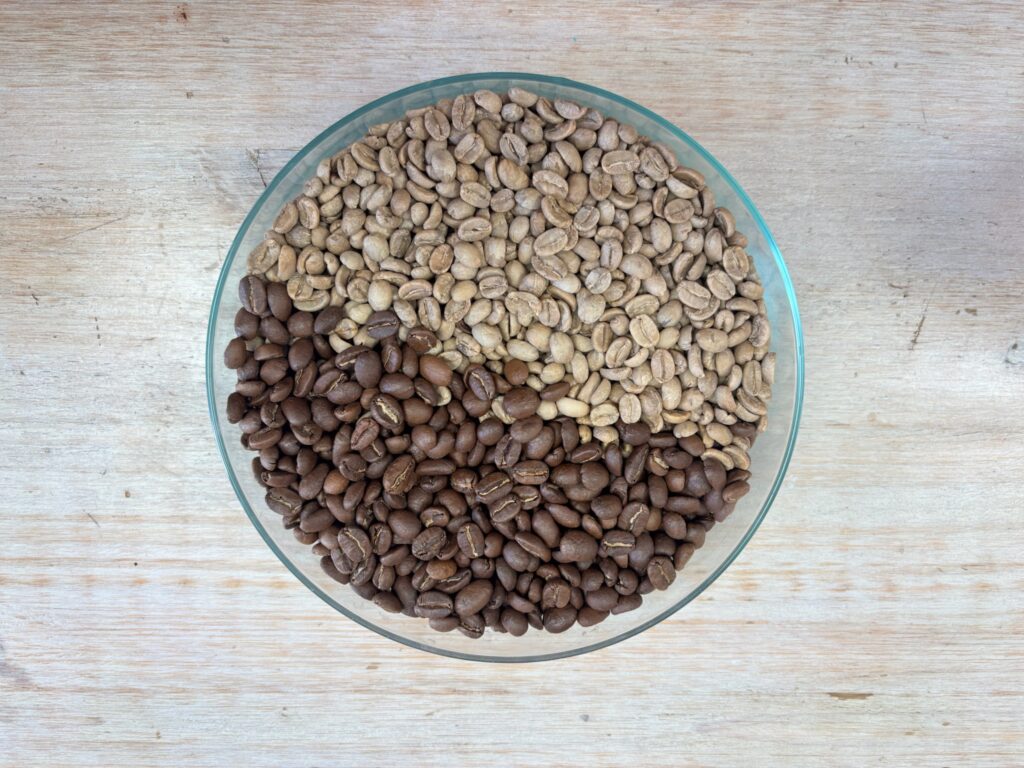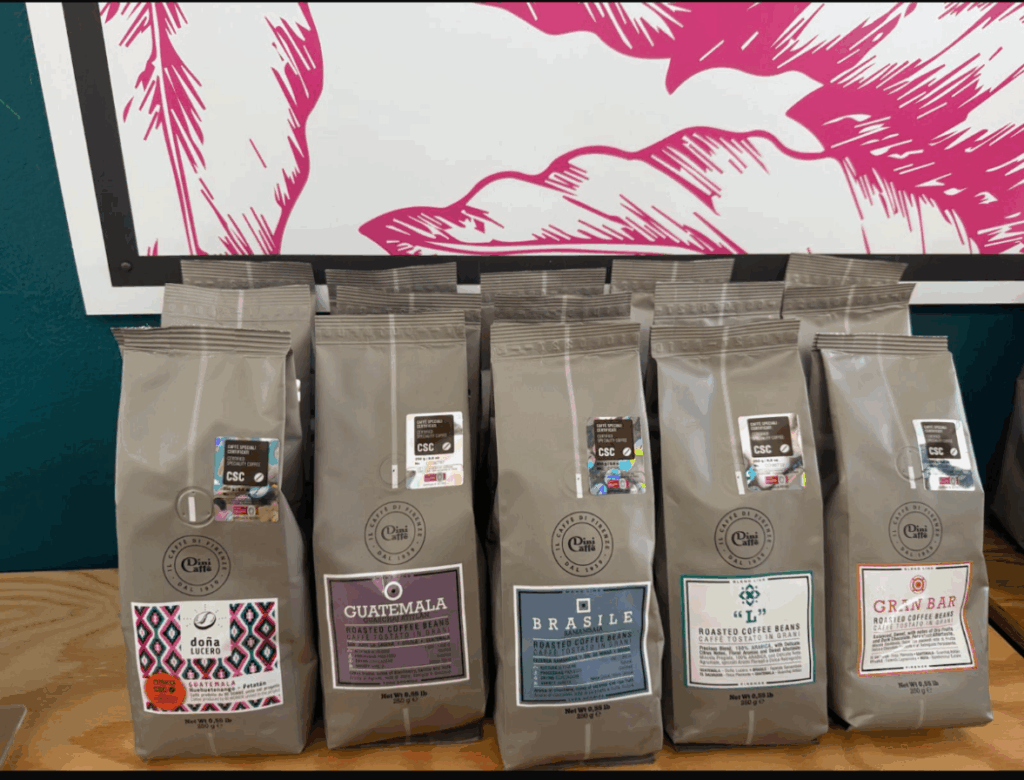Coffee culture in Italy is something to take very seriously, ingrained into everyday life in Italy. At Dini Cafe in Florence, we learned just how important coffee is; From the time that it is harvested until it is ready to brew is an impressive process. We saw firsthand how much work goes into the final product.
What makes Dini Cafe Special?
The facility we were at was seeping with the smell of fresh coffee, upon entering we could tell the craft and care that goes into every bag. We started by listening to one of the owners explain how this company is one of the only Italian coffee brands with women as owners.
We got a chance to see coffee beans in their first form, and a lot of us were shocked that they were green, this goes to show just how little we know about something we consume every day.
We learned that some of the sources other brands get their beans from do not treat their employees very well and the owners at Dini pride themselves on visiting every place they get their coffee from. This makes it a more personal experience for everyone.
Every bean, which comes in a cluster of cherries is picked by hand by mostly women. This is a tedious task and takes hours and just to fill up one large bag of beans because each bean, even ones on the same cherry matures at different times.
This is very important to the uniqueness of Dini because some manufacturers will just take the whole cherry, regardless of the ripeness of each bean, to make this process go faster. We learned that it takes around 60 beans to make just one shot of espresso, which was very shocking for the amount of work that goes into the harvest.

The Italian process
We got the chance to tour the entire facility. We started by seeing the big bags of unprocessed beans that had just arrived from where they had been harvested. After the beans arrive, they have to be cleaned which can be done both dry and with water, depending on the type of bean and the blend the company wants to achieve
From this, we learned that most of the coffee that is produced comes from an area called the bean belt, which is above and below the equator. We also were informed that Italian coffee blends actually do not contain beans grown in Italy, they are called Italian roasts because of the way they are roasted (in Italy) and the blend the manufacturers choose.
At Dini Cafe the owners spend a long time coming up with correct blends; between the taste, measurement of the blend, and the different aromas produced, are tested to make sure the blend is perfect. Another interesting thing we learned is that pre-grinding coffee makes it lose about 70% of its flavor.
Dini Cafe takes pride in the work that their team does. They are one of the few places that actually produce the final product with a lot of all of the types of coffee that go into their blends on the label; most of the other brands try to keep their recipes a secret. From this, the consumer can see where their coffee is coming from, and it makes it a more personal experience.

Our Part at Dini Cafe
While we were there, not only did we have the opportunity of seeing and hearing about the tedious process, but we also got to do a task that the owners do when they are creating a product. We got to blindly smell different aromas that come from different beans.
The owner told us that there are many of different aromas that come out of the coffee, we were only trying a small handful of some familiar ones. This was extremely difficult for most of us to do but all ten of the aromas that we tried to label we can now taste a few of them in our coffee.
This was such an amazing experience to see how a product that a lot of the world consumes is produced. After trying some Dini Cafe espresso, I could really tell that their way and care of making coffee affects the taste. If you are a coffee lover and ever in Florence this is a must-try spot for learning about the craft of making coffee.

Want to watch our experience first hand? Check out our TikTok or Instagram
Written by Elanna Tousignant, Dailey Adkins, Cooper Huges and Anna Gardiner
